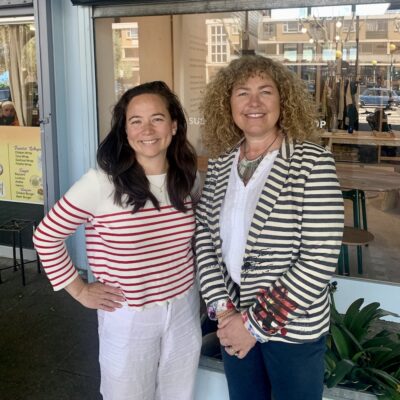
Working in the business v working on the business
What happens when you’re so busy doing the work that you can’t take a step back and focus on strategy for the business you know can grow?
They will obviously want to protect their investment, so how will that relationship go if challenges arise? For Kim Rihal of Equal Education, a meeting with someone who had trod that path before instilled confidence.

If your social enterprise is going to grow, at some stage you might need an investor. But how will they act in protecting their investment?
This was on Kim Rihal’s mind when she applied to the Human Lending Library.
“With investors, it’s just such a complex minefield and I wanted to have that conversation with someone experienced in business,” said Kim.
Kim is Head of Partnerships and co-founder of Equal Education, which supplies tutors for disadvantaged children. As the title of the social enterprise suggests, it aims to close the attainment gap for looked after children and those with special educational needs.
At the time of their meeting in 2018, Equal Education had applied to be part of a social impact bond (SIB), where an investor puts up the initial amount of working capital to achieve a social or environmental goal.
If the targets are hit, then the investor gets paid back the stake, plus interest, from a third party (usually from the public sector). But working with children is not always straightforward and Kim was mulling what would happen if things didn’t go to plan.
“There are target outcomes, but all sorts of variables, so I was wondering about maintaining that relationship with investors, given at that time we had no experience,” explained Kim.
She was mentored by Nicholas Wheeler, the founder of Charles Tyrwhitt, founded in 1986. The company has expanded to 40 stores internationally, based partly on a reputation for good customer service.
“We were so embryonic in our understanding and experience. It was just really good to get some insight,” said Kim.
“That session (with Nicholas) in particular was just really warm, really inviting, and it just felt like a really good space to share concerns. I felt it was quite personal advice and very supportive,” said Kim.
Nicholas was transparent about his own dealings with investors and offered practical advice when considering who to work with.
“He told me that although it’s very exciting when someone wants to invest in you, to not just go with the first investor, to do your own due diligence,” remembers Kim.
“And be very careful before you get into bed with them, because that’s how intimate the relationship is! Do meet them multiple times and meet them in different settings as well, not just in meetings. Find out what they’re really like.”
Equal Education had made it through to the second stage of the SIB but didn’t make the final cut.
But two years on from her meeting with Nick, the social entrepreneur is about to work with their first investor and Kim says Nick’s advice was in the back of her mind through the process.
“That conversation definitely made us more open to the idea of taking investment, even if it wasn’t part of a social impact bond,” said Kim.
Equal Education has continued to grow its business since 2018, when Kim met Nick. They’ve delivered over 100,000 hours of teaching via 600 tutors, a number that has doubled in those two years. In that time their turnover has risen threefold.
Kim said her meeting also made her more open to considering investors that were outside of the education sector Equal Education works within. Nick’s keen interest in her organisation also provided a boost.
“It just reinforces the fact that you’re doing something good and how exciting that is. Sometimes that can be lost in the day-to-day stresses so these sessions are incredibly invaluable,” she said.
Are you looking for a mentor for your social enterprise or charity? Why not apply to meet one? It’s completely free and takes just ten minutes.
Photo by Scott Graham on Unsplash

Working in the business v working on the business
What happens when you’re so busy doing the work that you can’t take a step back and focus on strategy for the business you know can grow?

How social enterprise can boost your marketing
Social enterprises often want to compete in the market on the quality of the service or product they are selling. But a change in strategy reaped dividends for one social entrepreneur.

How your network can see you through troubled times
Marie Cudennec Carlisle’s business was suddenly vulnerable when her customers ceased orders during the pandemic. But a supportive phone call from a fellow social entrepreneur helped turn things around.